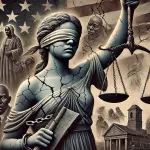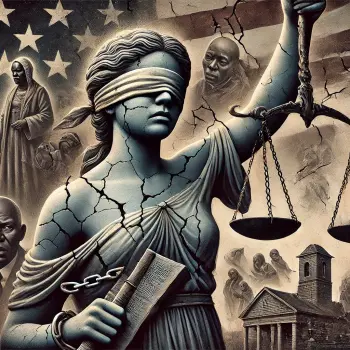 The United States, a nation celebrated for its diversity, faces significant challenges in implementing universal social policies such as healthcare, basic income, and free education. While various factors contribute to this situation, the issue of racial homogeneity, or rather the lack thereof, is often cited as a potential barrier. I wrote this blog post to explore whether America’s racial diversity is a primary reason for the absence of these universal policies, analyzing historical, social, and political dimensions.
The United States, a nation celebrated for its diversity, faces significant challenges in implementing universal social policies such as healthcare, basic income, and free education. While various factors contribute to this situation, the issue of racial homogeneity, or rather the lack thereof, is often cited as a potential barrier. I wrote this blog post to explore whether America’s racial diversity is a primary reason for the absence of these universal policies, analyzing historical, social, and political dimensions.
The Historical Context
Racial Dynamics and Policy Development
The United States’ history of racial discrimination has profoundly influenced its policy landscape. From slavery and segregation to contemporary issues of systemic racism, racial dynamics have shaped public opinion and policy decisions. In an Instagram post I made about the happiness and social safety net of Scandinavian countries, I had a significant number of people who said the quiet part out loud – that the social policies of these countries was due to their racial homogeny. While I initially balked at their premise (as I am largely an optimist), I thought this was worthy of further examination and discussion.
Welfare State and Racial Tensions
Historically, attempts to establish a robust welfare state in the U.S. have been undermined by racial tensions. During the New Deal era, for example, many social programs excluded African Americans, particularly in the South. Southern Democrats supported New Deal policies only if they preserved racial segregation and ensured that African Americans were excluded from many benefits. This legacy of exclusion has persisted, fostering mistrust and resistance to universal social programs among various racial and ethnic groups.
Universal Healthcare: A Fragmented System
Healthcare as a Battleground
Healthcare in the U.S. remains a contentious issue, with debates often reflecting deeper societal divides. The absence of a universal healthcare system can be attributed to several factors, including economic interests, political ideologies, and racial dynamics.
Racial Attitudes and Healthcare Policy
Research indicates that racial attitudes significantly influence public opinion on healthcare policy. Studies have shown that white Americans’ opposition to welfare programs, including healthcare, often increases when they perceive that minorities disproportionately benefit from these programs. This phenomenon, sometimes referred to as the “racial resentment hypothesis,” suggests that racial animosities can hinder the development of universal social policies.
Case Study: The Affordable Care Act
The Affordable Care Act (ACA) aimed to expand healthcare coverage to millions of uninsured Americans. However, its implementation faced significant opposition, partly driven by racial dynamics. Some opponents of the ACA framed the policy as benefiting racial minorities at the expense of white Americans, further polarizing the debate and highlighting how racial perceptions can impact support for healthcare reform.
Universal Basic Income: An Idea Confronted by Racial Bias
The Concept of Universal Basic Income (UBI)
Universal Basic Income (UBI) proposes providing all citizens with a regular, unconditional sum of money, regardless of employment status. While the idea has gained traction in recent years, it faces significant hurdles, including racial biases.
Racial Perceptions and Economic Policies
Like healthcare, public support for UBI is influenced by racial attitudes. When UBI is perceived as disproportionately benefiting racial minorities, white Americans’ support tends to decline. This perception is rooted in longstanding stereotypes about race and welfare, where minority groups are often unfairly depicted as undeserving or dependent on government assistance.
Historical Precedents and Modern Proposals
Past experiments with guaranteed income policies, such as the Negative Income Tax trials in the 1960s and 1970s, faced similar challenges. Contemporary proposals for UBI, such as those advocated by Andrew Yang during his 2020 presidential campaign, have also encountered resistance rooted in racial and economic anxieties.
Universal Free Education: The Promise Unfulfilled
Education as a Fundamental Right
Universal free education is widely regarded as a cornerstone of a just and equitable society. However, the U.S. education system is marked by significant disparities, often along racial lines.
Racial Inequities in Education
The American education system has long been characterized by racial segregation and inequality. Despite legal advancements, schools in many parts of the country remain deeply segregated, with minority students disproportionately attending underfunded and under-resourced schools. This segregation contributes to educational disparities and undermines efforts to establish a universal, high-quality education system.
Resistance to Universal Policies
Efforts to implement universal free education often face opposition rooted in racial dynamics. For example, proposals for free college tuition have been met with skepticism, particularly when perceived as disproportionately benefiting minority students. This resistance is fueled by the same racial resentments that affect support for other universal policies.
The Intersection of Race and Policy Resistance
Economic Interests and Political Ideologies
While racial dynamics play a significant role in shaping public opinion and policy, they intersect with economic interests and political ideologies. Powerful economic interests, such as the healthcare and pharmaceutical industries, have a vested interest in maintaining the status quo. Similarly, political ideologies, particularly those emphasizing limited government and individual responsibility, often align with racial resentments to oppose universal policies.
The Role of Media and Political Discourse
Media and political discourse also shape public perceptions of universal policies. Politicians and media outlets often frame debates in ways that exploit racial tensions, exacerbating divisions and undermining support for universal programs. This framing reinforces stereotypes and perpetuates the belief that universal policies will primarily benefit “undeserving” minority groups.
Case Study: Welfare Reform in the 1990s
The welfare reform of the 1990s, which culminated in the Personal Responsibility and Work Opportunity Reconciliation Act (PRWORA), illustrates how racial dynamics, economic interests, and political ideologies can converge to shape policy. The reform, driven by perceptions of welfare abuse and dependency among minority groups, significantly curtailed welfare benefits and shifted responsibility to the states. This shift reinforced racial stereotypes and deepened mistrust of government assistance programs.
Overcoming Barriers to Universal Policies
Building Coalitions Across Racial Lines
One potential solution to overcoming the barriers posed by racial dynamics is to build broad, multiracial coalitions that advocate for universal policies. By emphasizing the shared benefits of universal healthcare, UBI, and free education, advocates can counteract divisive narratives and foster solidarity across racial lines.
Addressing Racial Inequities Directly
Addressing the underlying racial inequities that fuel opposition to universal policies is also crucial. This involves confronting systemic racism in all its forms, from housing and employment discrimination to educational disparities. By creating a more equitable society, the foundation is laid for broader support of universal social policies.
Changing the Narrative
Changing the narrative around universal policies is essential. This involves challenging stereotypes, promoting positive stories of success, and highlighting the universal benefits of these policies. By reframing the debate, it is possible to shift public opinion and build greater support for universal programs.
Policy Examples from Other Countries
Examining policy examples from other countries can provide valuable insights. Many nations with greater racial homogeneity have successfully implemented universal policies. However, countries like Canada and the United Kingdom, which are also diverse, have made significant strides in providing universal healthcare and education. These examples demonstrate that racial diversity does not preclude the successful implementation of universal policies.
Wrap-up
The absence of universal healthcare, universal basic income, and universal free education in the United States is a complex issue influenced by various factors, including racial dynamics. While the lack of racial homogeneity plays a significant role, it intersects with economic interests, political ideologies, and media narratives to shape public opinion and policy decisions.
Overcoming these barriers requires building broad coalitions, addressing systemic racism, changing the narrative, and learning from international examples. By doing so, it is possible to create a more equitable society that provides essential services to all its citizens, regardless of race or background.
Ultimately, the pursuit of universal policies is a moral imperative that aligns with the principles of justice, equity, and the common good. It requires a concerted effort to overcome the divisions that have long hindered progress and to build a society where everyone can thrive.
Derrick Day is the author of Deconstructing Religion, and the host of The Forward Podcast.
Follow him on Facebook, Instagram, Twitter, TikTok, and YouTube













